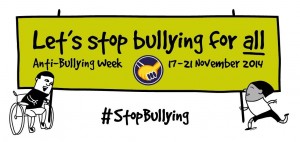
Sponsored school planners for students with autism
Welcome to the latest in our series of guest posts regarding autism and education. Today Jessica Brundle of Sponsored School Planners tells us a bit more about their innovative way of improving home-school communication aimed at children with autism and other special needs. Brundle also invites you to take part in short survey to help them make the product better.
Ms Brundle shares “Parents, what are they thinking about schools? We did the research, and then took it upon ourselves to provide a tool to help boost an improvement in home-school communication. With our tailor-made, informative planners here’s what we addressed and we put it all in one place, because we care. The planners are to be issued each September.
Communication
As parents we set out to improve home-school communication. We believe it’s a crucial element to monitor a child’s progression, and wanted to be able to monitor our own children’s education and developments. We are now on a mission to help all other parents and schools too. After speaking with Oftsed we were advised that on inspection improvement in home-school communication is well regarded, we’re invited to the school site to show and explain to Ofsted how each school utilises them, each planner is tailor-made for each school, and absolutely free, with no cost to the school. We fund the planners by seeking business sponsorship; we then allow ethical businesses relating to children’s services, such as swimming clubs, dance schools, football clubs, tutors, driving instructors and party entertainers etc. to offer a discount to The School Group (parents, pupils and teachers). We are essentially giving as much as possible to different aspects of the community. We believe it’s time to pull together and are absolutely passionate about working to help others.
We believe monitoring a child’s progress both academically and socially are just as crucial as each other. Academics are an important aspect of a child’s education and lessons are important, we also believe social skills are just as important to better the next generation so they can have a positive, ethical input in the community during their childhood and adult lives.
It’s crucial to install good ethics from a young age so we provide planners to children aged between 4-16 years.
Why?
We are absolutely passionate about the four following fundamentals in creating our next generation, we are parents who genuinely care and have the children best interests at heart, we want to make a difference.
- Anti-bullying, we have free information in the planners regarding anti-bullying, we need to raise a respectful generation, not a bunch of bullies, we need to accept everyone, and so do our children, we tackle bullying head on in our planners. We will also speak in school assemblies to promote and explain what’s in the planners and why, we fund this through our charity “Bully Off”. All schools have golden rules; our favourite golden rule is “Keeping everyone included”.
- Internet Safety, safeguarding our children against chat rooms etc.
- Healthy eating, balanced diets, types of foods, and discounts on healthy options.
- Tips for parents in connection to how children are being taught at school. Parents were taught in a different time, how are they supposed to know how the children are being taught, how are they supposed to help with homework? The planner gives welcomed tips.
Going to school is important for learning to interact with other people. Learning social skills is just as important as learning history, math, science, and English. Accepting others for who they are and seeing the good in others, realising we are all different, realising that no matter what we can all help each other, now that is what we like to call an education. That way you can learn the fundamental elements before getting into real world situations to better prepare you.
Testimonial, Headteacher, Mrs Rachel Hall of Newton Hill Community School “We can’t thank you enough for what you are doing, you are really bringing the community together and the planners are great, we can’t wait to use them come September, thank you so much, I like the fact they are tailor-made and not box-standard off the shelf, they really are unique”.
The planners are a fabulous tool for parents of children with special needs to monitor their child on a day-to-day basis. Here’s what some of our parents had to say already using planners:
Rebekah Finney-Edwards “All I can say is it’s a blessing people are out there like yourselves because these kiddies would get lost amongst the system without you. Good luck and I hope they work for many young children because it’s a life-long skill they are being taught and if they can be taught to write down and plan things early they will have a fab skill to carry them through life”.
Helen Greenhough “Oliver is at an autistic school in Castleford and he has a diary which I and his teacher write in daily. It’s great because I know what he’s done at school every day and I can pass on if he’s had a difficult night etc”.
Jo Foster “I work in a special School in Cannock and we have them for all pupils, differentiated for individual needs. They are a very important and effective means of communication”.
Jackie Reeves “When my son was in primary (he is 20 now), the school didn’t have planners but me and his teacher thought it would be a good idea so she made him one”
Jackie Reeves “The letters thing ‘ah I remember it well!’ Missed special assemblies and didn’t send money in on time for trips all too often because of missing letters … until he got the planner!”
Caroline Jones “They are really helpful tells us what kind of day he’s had and his different activities he’s done in the day. They are a great way for me to let them know if he’s not slept well and so on. A lot affects his mood and behavior, brilliant idea”. ”
Here’s a link to a short survey, it would be good to receive more comments regarding the project.
https://www.surveymonkey.com/s/D2RHN38
You can contact Sponsored School Planners below
www.sponsoredschoolplanners.co.uk
Twitter: @SponsoredP
Facebook: Sponsored School Planners


